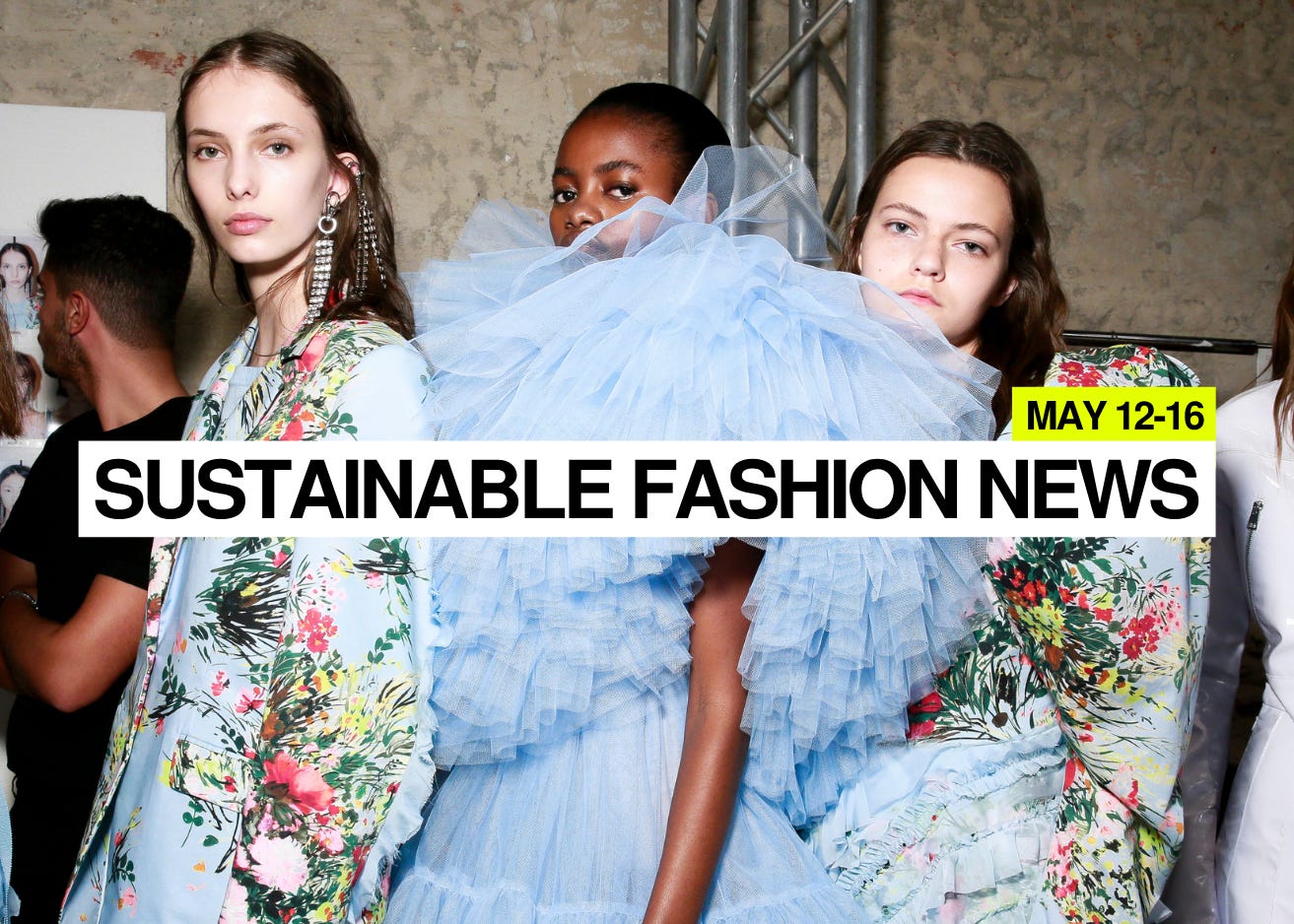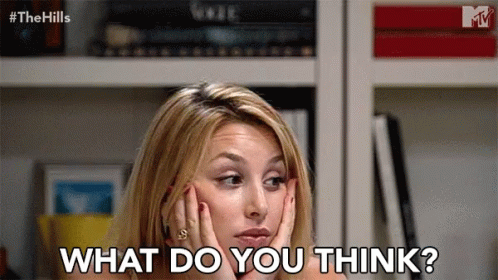Fashion’s Sustainability Report Card is Coming
But without shared definitions, what exactly is being graded?
Welcome to Week/End, your quick-hit guide to the need-to-know sustainable fashion news and insights shaping the industry. Think of us as your shortcut to context, clarity, and cultural fluency, without the overwhelm.
Was this email forwarded to you? Sign up now and join thousands of industry insiders who use our weekly briefings to stay ahead of the headlines—and sound like they’ve read everything (even if this is the only thing they read all week).
In today’s Week/End recap:
Congress is pushing to close the ‘de minimis’ loophole across all countries, for good.
France got EU approval to roll out voluntary environmental impact labels on clothing. It’s a big step, and a reminder we still don’t have a shared definition of “sustainable.”
A Milan court placed Valentino Bags Lab under judicial administration after uncovering labor abuses by its subcontractors.
Adidas officially dropped kangaroo leather—for good.
Australian Fashion Week banned fur, exotic skins, and feathers from its runways.
Levi’s launched a denim repair program with United Repair Centre.
…and more!
Plus: Versace, H&M, Reiss, and Vestiaire Collective are HIRING for sustainability roles!
Before we dive in…
We’re experimenting with a Sunday send. Like it? Hate it? Let us know.
Tariff Tracker: What to Know Today
Canadian Prime Minister Mark Carney implemented a six-month suspension on most of the 25% counter-tariffs covering $60 billion worth of U.S. goods—including apparel, footwear, cosmetics, motorcycles, and alcohol—reducing the effective duty rate to 0.4% through November 15, 2025. (Bloomberg Law)
US–China 90-Day Truce: After weekend talks in Beijing, Trump announced a 90-day pause on his “reciprocal” tariffs.That brought duties on all China and Hong Kong imports down from 145% to 30%, while China’s tariffs on U.S. goods dropped from 125% to 10%. If no permanent deal is reached, the original 145% rate snaps back on August 11.
‘De Minimis’ Duty Suspension: Separately, Trump also suspended the ‘de minimis’ tariff on sub-$800 shipments from China and Hong Kong—lowering the rate from 120% to 54% for 90 days, while keeping the $100 per-package fee. That window closes on June 1. If no extension is issued, the tariff jumps back to 120% and the package fee doubles to $200.
Congress Moves Next: Meanwhile, House Republicans added new language to H.R. 1968 that would close the ‘de minimis’ loophole across allcountries. If passed, all shipments under $800 would be subject to regular tariffs, with importers facing fines up to $10,000 per package for underreporting value. Committees are expected to vote later this month. If signed, duties would take effect immediately.
What This Means for Fashion: Almost immediately after the pause went live, brands ramped production, air-freighting priority SKUs and rebooking ocean containers for the rest to hit late-May and early-June season launches. That surge boosted stocks of names like VF Corp. and Victoria’s Secret, but also sparked a tight logistics scramble, squeezing product through already crowded ports without swapping one headache for another.
The 90-day window gives brands room to breathe, but not much. Some are front-loading basics, others are experimenting with smaller micro-drops or shifting production to secondary hubs. Most are circling June 1 and August 11 on the calendar, tracking demand in real time, and working through margin-impact models, consumer surveys, and two-year sales scenarios to prep for whatever comes next.
Despite record-low consumer sentiment, TikTok-fueled recession chatter, and a spike in resale, Americans kept shopping in April. According to Wunderkind, 46% of consumers said they were worried about rising clothing prices, and a separate survey from AlixPartners found nearly 80% had already walked away from a shoe buy this year due to cost.
Still, apparel sales held steady at $25 billion in April, up 5.9% compared to the same time last year, and have remained stable since January. Tariff pressure may be growing, but so far, it hasn’t meaningfully shifted how most consumers shop.
EU Approved France’s Voluntary Environmental Labeling
What’s going on:
On Thursday, the French Ministry of Ecological Transition confirmed that the European Commission approved France’s draft framework for a voluntary environmental labeling system for clothing, officially called the Environmental Cost label (formerly Eco-score).
The details:
The label assigns product-level environmental impact scores based on lifecycle assessment data across 16 indicators, including carbon emissions, water use, land use, and energy. It also factors in microfiber pollution, traceability, and business practices tied to overproduction. Voluntary rollout is expected in the second half of 2025, pending final approval by France’s Council of State. Mandatory labeling could follow as early as 2026, though a compliance date hasn’t been confirmed.
The bigger picture:
The Environmental Cost label is part of France’s broader push to regulate fashion’s environmental impact, alongside a proposed fast fashion crackdown that passed the National Assembly in March 2024, but has since stalled in the Senate.
The label will require brands to submit standardized product-level data to a public portal. If they don’t, third parties will be allowed to publish scores on their behalf—likely using less precise data that could reflect poorly on the product.
If this feels familiar, it should…
The Higg Index’s consumer label made similar promises and sparked enough backlash that it was suspended. France’s approach may be more robust, but the same unresolved question lingers: Can we score sustainability before we define it?
For the past couple weeks, we’ve been exploring: WTF is sustainable fashion?
France’s Environmental Cost label is a major step toward accountability, but it also reopens an uncomfortable truth: we still don’t have shared definitions, benchmarks, or baselines. So how do we score something we haven’t even agreed on?
Will this bring clarity, or just a new wave of consumer confusion?
Or is building a scoring system how we finally start to create that shared language? Because once you score something, you force comparison. Once you compare, you force decisions. And once enough stakeholders adopt the system, you start to shape how we define sustainability.
But is the industry ready to measure what it hasn’t defined? Shouldn’t we align on that language before communicating scores to consumers, especially when trust in sustainability claims is already shaky?
Then again, do we even have time to wait? Regulations are coming. Climate targets are closing in. And the industry is still tangled in self-defined claims and inconsistent standards.
What do you think? Is France’s Environmental Cost label a step toward clarity, or more well-intentioned confusion?
Let me know in the anonymous poll below.
Have more to say? Drop your thoughts in the comments.
TrusTrace launched an AI-driven upgrade to its supply chain traceability platform, enabling brands and manufacturers to centralize supplier, brand-owned, and third-party data for compliance, risk management, and material origin tracking.
Worldly launched two new tools—Insights Hub and Eco Scores—that enable brands, retailers, and manufacturers to track key decarbonization KPIs, calculate Scope 3 emissions using primary supplier data, and comply with France’s upcoming product-level Environmental Cost label regulations.
Glimpact launched the Global Impact Score, a free online tool that uses the EU’s Product Environmental Footprint (PEF) methodology to assess apparel’s environmental impact across 16 indicators. Designed to help U.S. brands prepare for the EU’s Ecodesign for Sustainable Products Regulation, the tool includes real-time simulations for material and production changes.
Better Cotton joined the Policy Hub coalition and its Advisory Group to represent cotton and farm-level standards in EU regulatory discussions on the Green Claims Directive, Empowering Consumers Directive, the Eco-design for Sustainable Products Regulation, and the deregulation-focused Omnibus proposals.
Recover and Intradeco announced a joint venture to produce recycled cotton fiber in El Salvador.
Levi Strauss & Co. launched a denim repair service in partnership with United Repair Centre, offering standardized repairs using Levi’s training and repair handbook across Europe as part of its new Love.Tear.Repair program.
A Milan court placed Valentino Bags Lab Srl, a licensed manufacturer of Valentino-branded handbags, under judicial administration for one year after finding the company failed to prevent labor exploitation by its subcontractors, making it the fourth Italian luxury supply chain penalized since 2023 in a widening crackdown on systemic worker abuse in the "Made in Italy" fashion sector. (Business of Fashion)
Adidas has permanently ended its use of kangaroo leather in footwear, confirming at its annual shareholder meeting that it stopped sourcing the material months ago. With Adidas joining Nike, Puma, Diadora, and New Balance in dropping kangaroo leather, all five of the world’s top athletic footwear brands have now exited the trade. (WWD)
Australian Fashion Week 2025 banned all animal-derived materials, including fur, exotic skins, and feathers, effective immediately, following a new policy developed with Collective Fashion Justice and the Australian Fashion Council.
Patrick McDowell received the 2025 Queen Elizabeth II Award for British Design, presented by Kate Middleton during the BFC Foundation Impact Day in London. The award recognized McDowell's work in sustainable fashion, particularly his use of deadstock materials, made-to-order production, and his circular business model. (WWD)
Swedish designer Petra Fagerström, won the 2025 Challenge the Fabric Award in Milan, a prize recognizing innovation in sustainable fashion using man-made cellulosic fibers (MMCF). The competition tasked seven emerging designers with creating looks made from recycled materials provided by textile innovators like Sappi Verve, Ecocell™, Pyratex, Circ, and Circulose. Fagerström, won for her structured skirt and coat using Sappi Verve jersey and Ecocell twill. (Vogue Business)
What caught Week/End readers’ attention last week?
✅ The ripple effect of tariffs sparking no-buy and low-buy trends on TikTok.
✅ ThredUp’s move to eliminate fees and open-source its resale tech—game-changer?
✅ The rebrand of Textiles 2030 into the UK Textiles Pact (same mission, new phase).
✅ The launch of NovaPoly by Hugo Boss, a degradable recycled polyester yarn with plans for industry-wide licensing.
Jobs & Internships
New on the board this week:
Reiss | ESG Manager
London Area, United Kingdom | On-Site・Full-Time
↳ Apply hereVersace | Sustainability Intern
Milan, Lombardy, Italy | Hybrid · Internship
↳ Apply hereVestiaire Collective | Sustainability Apprentice
Paris, Île-de-France, France | Hybrid · Full-Time
↳ Apply herestichd | Sustainability Intern
's-Hertogenbosch, North Brabant, Netherlands | On-Site · Internship
↳ Apply hereH&M | Human Rights Expert
Stockholm, Stockholm County, Sweden | On-Site · Full-Time
↳ Apply here
🔒 Want full access to every job listing, every week? Click here to unlock the complete job board!
🔗 Stay connected: LinkedIn | Instagram
📣 Want to reach 5.5K+ professionals in fashion and sustainability? Sponsor the newsletter!
✉️ Forwarded this email? Sign up here to get Week/End delivered every Saturday (or Sunday👀).



















